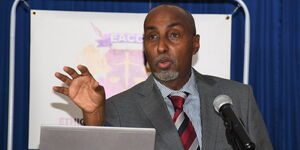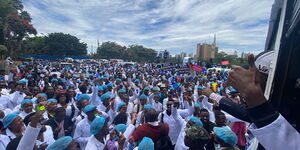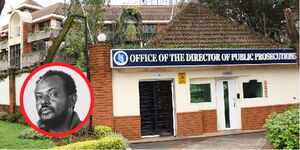The Motorist Association of Kenya now wants the government to stop the expansion of the Nairobi-Nakuru highway and the construction of the Nairobi-Mombasa expressway due to a lack of transparency.
The motorists on Tuesday, July 29, argued that the construction of the two roads through the Public-Private Partnership agreement was a scheme by political elites to profit at the expense of the ordinary Kenyans.
According to them, multinational companies and local power brokers were eager to cash in on the deal, while crucial details bout the projects were intentionally concealed from the public.
In their statement, the motorists also raised concern over the tolling system that would be used on the Nairobi-Mombasa expressway, claiming that the Ksh5,000 to Ksh7,000 per one-way trip was unaffordable for most drivers.
"We’ve consistently raised alarm over murky PPP agreements, especially now as similar arrangements are being pushed for the Rironi-Mau Summit and Mombasa-Nairobi highways," the motorists claimed.
Concerns over the procurement for the construction of the two roads stem from a damning exposé by the Nation Media Group over the involvement of the Kenyatta family in the procurement of the Nairobi Expressway.
The publication disclosed that court documents showed that the Kenyatta family supplied sand and land to facilitate the construction of the multi-billion-dollar expressway, potentially earning between Ksh1.8 billion to Ksh2.8 billion.
While commenting on the Daily Nation's article, Tax Row Exposes Kenyatta Family Expressway Deal, the motorists claimed the construction of the Nairobi Expressway was well-orchestrated by a section of political elites to defraud Kenyans.
"Ownership of the Nairobi expressway, constructed by China Road and Bridge Corporation (CRBC), remains clouded in mystery," the Motorist Association alleged.
To address the potential exploitation of Kenyans through PPP deals, the Association proposed the use of taxes, loans, or bonds in the funding of major road projects.
According to the motorists, while the use of taxes and loans in road projects seemed expensive, they were more transparent, fair and sustainable means of funding capital projects.












